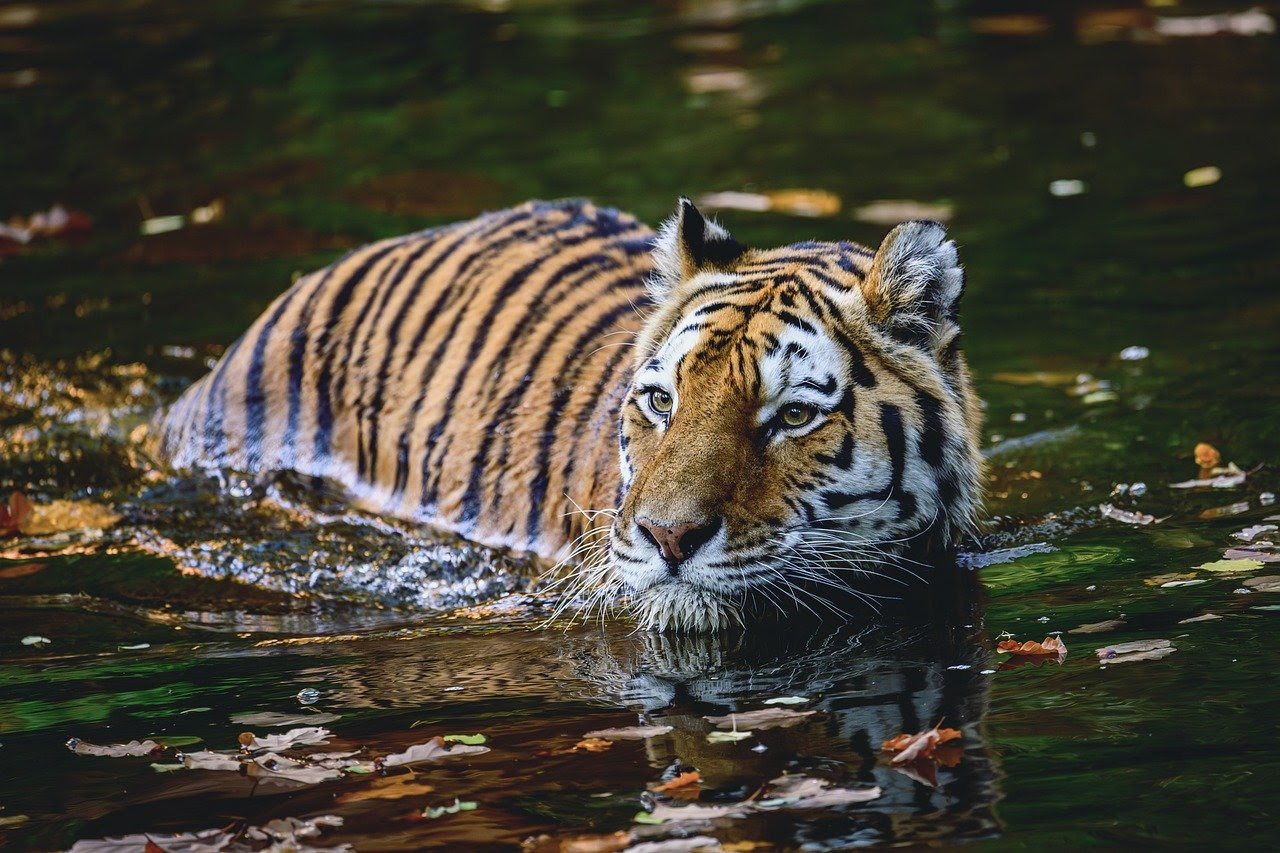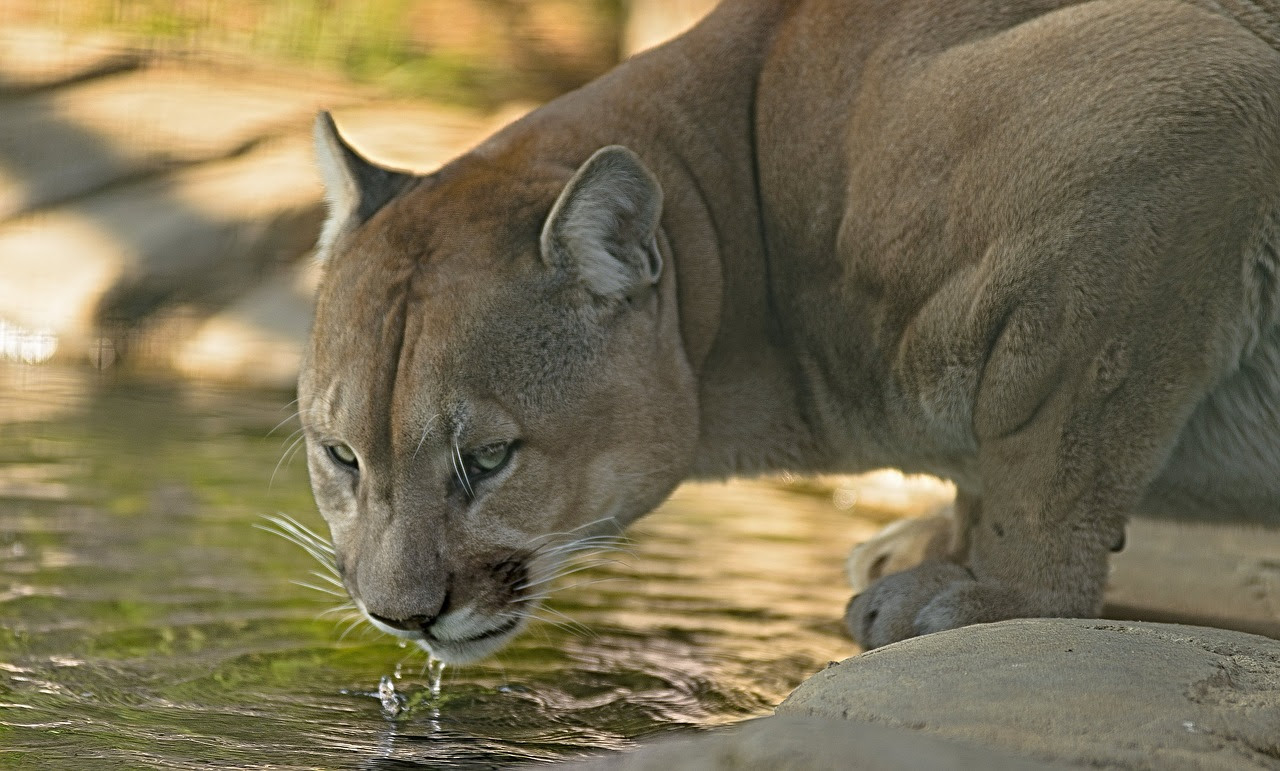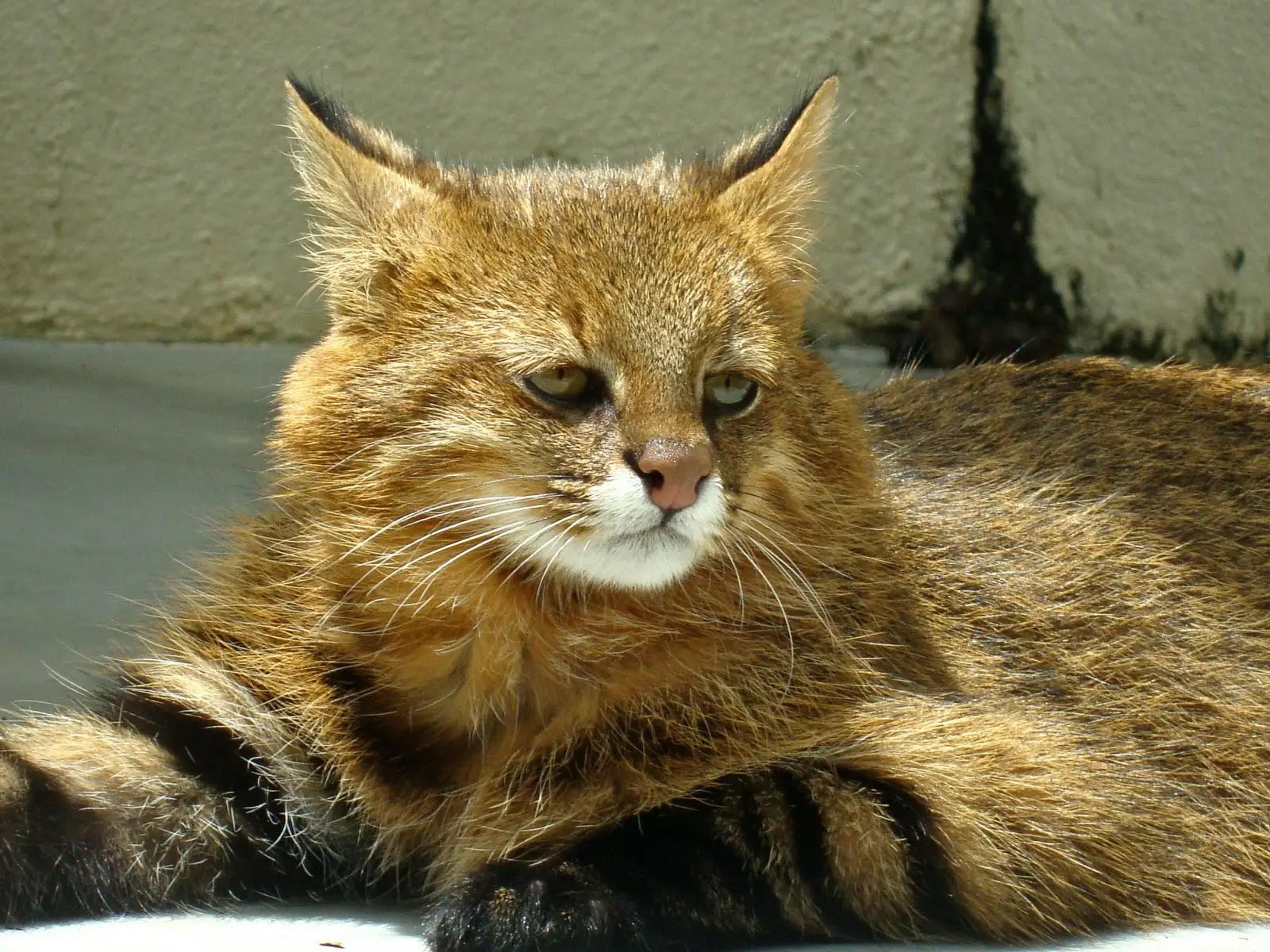Save Animals Facing Extinction

2025
![]() |
 |
| Happy World Pangolin Day, folks! Today we’re shining the spotlight on one of our favorite species and raising awareness of their fight for survival.
Pangolins are the most trafficked mammal in the world, often hunted for their scales and skin to be used in traditional medicine.
These adorable, scaly creatures are facing bigger threats than ever before, leaving all eight species of pangolin either vulnerable or critically endangered.
We can’t let this unique species disappear! But without immediate action to combat poaching and wildlife trafficking, we could face a future without pangolins. Join our fight in honor of World Pangolin Day to save this incredible species from extinction → |
 |
|
|
| We love pangolins for their unique and fascinating attributes. These mammals are covered in tough, overlapping scales that resemble plated armor. They use their long, muscular, sticky tongues to eat up to 12,000 ants and termites each day!
These adorable animals deserve a better future – that’s why we’re working to support critical projects on the ground to combat poaching and habitat loss, two of the biggest drivers of extinction. But we can’t do it alone! We must scale up our pangolin conservation efforts to prevent these little known animals from going extinct.
Remember – extinction is forever. In honor of World Pangolin Day, join our movement to save pangolins from extinction >> |
|
|
| Thanks for stepping up for our wildlife,
Save Animals Facing Extinction |
|
Save Animals Facing Extinction
P.O. Box 14494
Seattle, WA 98114
United States
If you believe you received this message in error or wish to no longer receive email from us, please unsubscribe.
|
|
|
|
Contributions or gifts to Save Animals Facing Extinction are not tax deductible as charitable contributions or as business expenses.P.O. Box 14494
Seattle, WA 98114
|
|
PAID FOR BY SAVE ANIMALS FACING EXTINCTION
|
Thank you for supporting Save Animals Facing Extinction. Your unwavering support helps fight back against poachers and ultimately win the race against extinction.
Your support allows us to make an impact in saving endangered animals. Funds raised will be used to support ballot measures, lobbying efforts, and other advocacy activities in support of laws protecting endangered species. For information about our state required disclosures, please click here.
From the entire Save Animals Facing Extinction team, thanks for your support!
|
|
|
![]() |
| Folks, do you know what today is? It’s World Whale Day!!
Today we’re celebrating the awe-inspiring gentle giants that inhabit our oceans, and bringing awareness to the threats they face in the wild. Our oceans wouldn’t be the same without important species like humpback whales, blue whales, critically endangered North Atlantic right whales, and more.
In honor of World Whale Day, join our massive conservation movement to save whales from extinction → |
 |
|
|
| Several whale species were hunted to the brink of extinction in the 20th century and have been fighting to recover ever since. Some species have bounced back after being nearly wiped out entirely – but they still face serious threats like climate change, ship strikes, and deadly entanglements in fishing gear.
We need protections in place all over the world to preserve our whale populations! We have proof that conservation works to recover populations, so we must push for more protected areas, restrictions on fishing gear to avoid entanglements, and adjustments in ship speeds and locations to avoid fatal ship strikes.
We don’t want a future where whales exist only in history books. Will you help us turn the tide? Celebrate World Whale Day with us by joining our movement to save whales from extinction >> |
|
|
| Thanks for all you do,
Save Animals Facing Extinction |
|
Save Animals Facing Extinction
P.O. Box 14494
Seattle, WA 98114
United States
If you believe you received this message in error or wish to no longer receive email from us, please unsubscribe.
|
|
|
|
Contributions or gifts to Save Animals Facing Extinction are not tax deductible as charitable contributions or as business expenses.P.O. Box 14494
Seattle, WA 98114
|
|
2024
![]() |
| This is promising news for tigers, folks…
Conservationists in India are working to protect tiger populations by educating local communities and helping reduce conflict between tigers and humans.
India is home to about 70% of the world’s tigers, and these creatures need a lot of habitat to roam freely in search of prey. Human encroachment and habitat destruction have driven tigers into dangerous and fatal encounters with people, pushing tigers towards extinction and devastating communities as well.
Saving tigers from extinction means helping people peacefully coexist with these iconic striped felines. We’re thrilled conservationists are on the ground working to do just that – and we must continue supporting these kinds of efforts. Join our movement to save tigers from extinction >> |
 |
|
|
| Tigers have experienced dramatic declines in the past century. In 1900, there were around 100,000 tigers living in the wild globally. Today, only about 4,500 remain. Tigers are now occupying only 7% of their historical range.
Along with habitat destruction and human encroachment, tigers have also been threatened by poachers, who target them for their pelts. Without action, this species could soon disappear before our eyes.
These majestic big cats don’t have much time – we need to ramp up conservation efforts to save this incredible species, before it’s too late. Join our movement to save tigers from extinction → |
|
|
| Thanks for stepping up,
Save Animals Facing Extinction |
|
Save Animals Facing Extinction
P.O. Box 14494
Seattle, WA 98114
United States
If you believe you received this message in error or wish to no longer receive email from us, please unsubscribe.
|
|
|
|
Contributions or gifts to Save Animals Facing Extinction are not tax deductible as charitable contributions or as business expenses.P.O. Box 14494
Seattle, WA 98114
|
|
PAID FOR BY SAVE ANIMALS FACING EXTINCTION
|
Thank you for supporting Save Animals Facing Extinction. Your unwavering support helps fight back against poachers and ultimately win the race against extinction.
Your support allows us to make an impact in saving endangered animals. Funds raised will be used to support ballot measures, lobbying efforts, and other advocacy activities in support of laws protecting endangered species. For information about our state required disclosures, please click here.
From the entire Save Animals Facing Extinction team, thanks for your support!
|
|
Florida’s panthers are teetering on the edge of extinction, folks!
These creatures were once plentiful across the Southeastern United States, but fewer than 230 of them remain in the wild – confined mostly to Florida along the Gulf of Mexico.
Florida panthers have been decimated by hunting, habitat loss, and fatal vehicle strikes. With so few of them left, their fragile population is highly susceptible to disease and inbreeding.
This species needs stronger protections NOW – before it’s too late! Join our movement to save species like Florida panthers from extinction →
 |
|
|
| Cars and other vehicles pose a huge threat to the future of Florida panthers. In fact, 14 panthers have been killed by vehicles so far this year. If we don’t do anything to stop this, Florida panthers could soon disappear before our very eyes!
The future of Florida panthers is hanging in the balance – but all hope is not lost! Three Florida panther kittens were born this year, bringing hope to conservationists and the highly endangered species.
We can save species like Florida panthers from extinction, but it’s going to take all of us working together. Please, join our movement now >> |
|
|
| Together,
Save Animals Facing Extinction |
|
Save Animals Facing Extinction
P.O. Box 14494
Seattle, WA 98114
United States
|
![]() |
|
|
| Red colobus monkeys have been a prime target for hunters – they live in loud social groups and don’t always tend to flee like other mammals when approached, making them easy for hunters to find.
These species live in the tallest trees in a forest, and have been threatened by logging, mining, and infrastructure development that destroy the forests they call home. Hunting and habitat destruction, along with the illegal pet trade, have decimated red colobus populations across Africa.
Protecting red colobus monkeys will require cooperation from local communities and governments to safeguard their habitats so they can thrive in their environment. There’s no time to monkey around – we don’t want to see a future where red colobus monkeys exist only in history books. But unless we take immediate action, these species will continue to decline at a rapid pace.
Please, join our movement to save species like red colobus monkeys from extinction → |
|
|
| Together,
Save Animals Facing Extinction |
|
Save Animals Facing Extinction
P.O. Box 14494
Seattle, WA 98114
United States
If you believe you received this message in error or wish to no longer receive email from us, please unsubscribe.
|
|
|
|
Contributions or gifts to Save Animals Facing Extinction are not tax deductible as charitable contributions or as business expenses.P.O. Box 14494
Seattle, WA 98114
|
|
PAID FOR BY SAVE ANIMALS FACING EXTINCTION
|
Thank you for supporting Save Animals Facing Extinction. Your unwavering support helps fight back against poachers and ultimately win the race against extinction.
Your support allows us to make an impact in saving endangered animals. Funds raised will be used to support ballot measures, lobbying efforts, and other advocacy activities in support of laws protecting endangered species. For information about our state required disclosures, please click here.
From the entire Save Animals Facing Extinction team, thanks for your support!
|
|
![]() |
| Folks, today we’re thrilled to honor one of our favorite species… |
| It’s WORLD ELEPHANT DAY!! |
 |
Here are just a few reasons why elephants are so special:
- They’re among the most intelligent creatures on the planet
- They’re able to communicate through body language and express a wide range of emotions
- They are an integral part of their ecosystem, and are nicknamed “ecosystem engineers!”
But these iconic creatures face an uncertain future. They’re being pushed to the brink of extinction by:
- Poachers, who slaughter an elephant every 15 minutes for their ivory
- Human encroachment, which leaves elephants with less and less suitable habitat
- Climate change and other environmental factors
If nothing changes, these majestic creatures could go extinct within our lifetime. We cannot let that happen. The fate of elephants rests in our hands – let’s fight together to save them!
We need all hands on deck to ensure elephants can live on in the wild for generations to come. Help us honor elephants on World Elephant Day by joining our movement to save these special creatures from extinction >> |
|
|
| Together,
Save Animals Facing Extinction |
|
Save Animals Facing Extinction
P.O. Box 14494
Seattle, WA 98114
United States
If you believe you received this message in error or wish to no longer receive email from us, please unsubscribe.
|
|
|
|
Contributions or gifts to Save Animals Facing Extinction are not tax deductible as charitable contributions or as business expenses.P.O. Box 14494
Seattle, WA 98114
|
|
PAID FOR BY SAVE ANIMALS FACING EXTINCTION
|
Thank you for supporting Save Animals Facing Extinction. Your unwavering support helps fight back against poachers and ultimately win the race against extinction.
Your support allows us to make an impact in saving endangered animals. Funds raised will be used to support ballot measures, lobbying efforts, and other advocacy activities in support of laws protecting endangered species. For information about our state required disclosures, please click here.
From the entire Save Animals Facing Extinction team, thanks for your support!
|
|
![]() |
| Folks, this precious wildcat is on the BRINK of extinction!
The Muñoa’s Pampas cat, also known as the Uruguayan Pampas cat, is found in the Pampas grasslands that span parts of Brazil, Uruguay, and Argentina. With only 100 of them remaining in the wild, the Muñoa’s Pampas cat is one of the most endangered felines in the world.
Habitat destruction, vehicle strikes, and dangerous encounters with humans have pushed this wildcat closer and closer towards extinction. In fact, experts believe that the Muñoa’s Pampas cat could be extinct within just 10 years!
We can’t let that happen, folks – join our conservation movement to protect and preserve species like the Muñoa’s Pampas cat from extinction >> |
 |
|
|
| Little is known about the elusive Muñoa’s Pampas cat, but this species is a crucial part of their ecosystem, keeping prey and pest populations in check and maintaining balance in the Pampas, the largest grassland biome in South America.
Conservationists have been working overtime to preserve the remaining population of Muñoa’s Pampas cats, but recent flooding in Rio Grande do Sul in Brazil has caused local conservation efforts to grind to a halt. The future of this wildcat now hangs in the balance.
We must support the kinds of dedicated conservation efforts that allow precious species like the Muñoa’s Pampas cat to survive. Please, join our movement to save species like the Muñoa’s Pampas cat from extinction >> |
|
|
| Thanks for doing your part,
Save Animals Facing Extinction |
|
Save Animals Facing Extinction
P.O. Box 14494
Seattle, WA 98114
United States
If you believe you received this message in error or wish to no longer receive email from us, please unsubscribe.
|
|
|
|
Contributions or gifts to Save Animals Facing Extinction are not tax deductible as charitable contributions or as business expenses.P.O. Box 14494
Seattle, WA 98114
|
|
PAID FOR BY SAVE ANIMALS FACING EXTINCTION
|
Thank you for supporting Save Animals Facing Extinction. Your unwavering support helps fight back against poachers and ultimately win the race against extinction.
Your support allows us to make an impact in saving endangered animals. Funds raised will be used to support ballot measures, lobbying efforts, and other advocacy activities in support of laws protecting endangered species. For information about our state required disclosures, please click here.
From the entire Save Animals Facing Extinction team, thanks for your support!
|
|

 |
Folks, today is a day to celebrate, learn, and recommit to protecting our world’s most threatened and endangered species…
it’s Endangered Species Day!Here are a few things YOU can do to celebrate all of our planet’s incredible species and help us save them from extinction:Find an Endangered Species Day Event near you!
Click here for a map of events celebrating Endangered Species Day and join one in your community! There are wildlife refuges, gardens, schools, libraries, museums, community groups, nonprofits, and individuals that are holding special programs and events to celebrate this important day.Contact your elected officials urging them to support the Endangered Species Act
The Endangered Species Act is the most powerful tool we have to protect our biodiversity – but opponents of this landmark legislation continue to fight to weaken it, putting our wildlife at risk! Contact your members of Congress by letter, phone, or email and urge them to protect and strengthen the Endangered Species Act!Support pro-ESA candidates
We need elected officials at every level of government who support conservation efforts and the Endangered Species Act. This election year and beyond, make a commitment to support pro-ESA candidates up and down the ballot.Join our movement
We love all of the incredible species that call our planet home – from the great blue whale to the tiny bumblebee. And we know you do too!That’s why we’re working to protect our Earth’s most precious wildlife. We’re in a race against extinction – human hands have pushed so many iconic species towards the brink, but together, humans can work to save them.So on this Endangered Species Day, let’s celebrate all of our planet’s incredible species — and work together to save them. Click here to join our fight to save endangered species >> |
|
|
| Together,
Save Animals Facing Extinction |
|
Contributions or gifts to Save Animals Facing Extinction are not tax deductible as charitable contributions or as business expenses.
Save Animals Facing Extinction
P.O. Box 14494
Seattle, WA 98114
United States
If you believe you received this message in error or wish to no longer receive email from us, please unsubscribe.
|
|
|
|
Contributions or gifts to Save Animals Facing Extinction are not tax deductible as charitable contributions or as business expenses.P.O. Box 14494
Seattle, WA 98114
|
|
PAID FOR BY SAVE ANIMALS FACING EXTINCTION
|
Thank you for supporting Save Animals Facing Extinction. Your unwavering support helps fight back against poachers and ultimately win the race against extinction.
Your support allows us to make an impact in saving endangered animals. Funds raised will be used to support ballot measures, lobbying efforts, and other advocacy activities in support of laws protecting endangered species. For information about our state required disclosures, please click here.
|
|
2023
![]() |
| Folks, our hearts are breaking for rhinos… |
 |
| Officials in Namibia plan to dehorn 600 rhinos in the next year. Decades of poaching has led to this drastic but necessary measure to protect rhinos and deter poachers from targeting them for their horns.
Namibia is home to over a third of Africa’s remaining black rhino population – and Namibia’s largest park, Etosha National Park, is a poaching hotspot. The number of endangered rhinos poached in Namibia reached an all-time high in 2022, and six black rhinos have already been killed in Etosha National Park in 2023.
We must fight to stop poaching and the illegal wildlife trade – before we lose this precious species forever. Join our fight to save rhinos from extinction >> |
|
|
| Rhino horns are made from keratin, the same stuff as your fingernails – but many people believe that rhino horn has medicinal properties, and poachers target rhinos and sell their horns for cash. By removing rhino horns, these animals become less valuable in the eyes of poachers and are therefore spared from being brutally slaughtered.
It’s a relief that hundreds of rhinos could be spared from a terrible fate – but it’s heartbreaking that these majestic and unique creatures will be left without their signature horns. As long as demand for rhino horns exists, rhinos will be in danger.
That’s why we must continue fighting to stop the illegal wildlife trade that has pushed rhinos to the brink of extinction. Click here to help us save rhinos from extinction and ensure this species lives on for generations to come >> |
|
|
| Thank you for caring,
Save Animals Facing Extinction |
|
Save Animals Facing Extinction
P.O. Box 14494
Seattle, WA 98114
United States
If you believe you received this message in error or wish to no longer receive email from us, please unsubscribe.
|
|
|
|
Contributions or gifts to Save Animals Facing Extinction are not tax deductible as charitable contributions or as business expenses.P.O. Box 14494
Seattle, WA 98114
|
|
PAID FOR BY SAVE ANIMALS FACING EXTINCTION
|
Thank you for supporting Save Animals Facing Extinction. Your unwavering support helps fight back against poachers and ultimately win the race against extinction.
Your support allows us to make an impact in saving endangered animals. Funds raised will be used to support ballot measures, lobbying efforts, and other advocacy activities in support of laws protecting endangered species. For information about our state required disclosures, please click here.
From the entire Save Animals Facing Extinction team, thanks for your support!
|
|
![]() |
| This news has us VERY worried, folks: |
 |
| The pandemic’s impact on global trade slowed the illegal trafficking of wildlife parts. But officials are now seizing more shipments of elephant tusks, rhino horns, pangolin scales, and more. While the trade hasn’t yet fully returned to pre-pandemic levels, the trend is very worrisome.
The illegal wildlife trade is one of the largest illicit global markets in the world – and it has decimated populations of critically endangered animals like elephants, rhinos, and tigers.
We can’t sit by and watch the endangered species that we love go extinct. Take a stand right now and join us in the fight to stop wildlife trafficking >> |
|
|
| Here’s the simple truth: No one in the world needs an elephant tusk except an elephant. No one needs a rhino horn except a rhino. No one needs a pangolin’s scales except a pangolin.
But the harsh reality is that innocent animals are butchered for their tusks, teeth, scales, and skin. They are being brutally slaughtered as part of the rampant illegal wildlife trade that spans from Africa and Asia to the United States.
The United States plays a major role in this trade, and could significantly curb trafficking with stringent wildlife trafficking laws. These precious animals deserve protection! That’s why we’re fighting everyday to stop trafficking and save endangered species from a terrible fate.
Remember: Extinction is forever. Will you commit to joining our fight to stop wildlife trafficking? Click below to find out how you can get involved >> |
|
|
| Thanks for caring,
Save Animals Facing Extinction |
|
Save Animals Facing Extinction
P.O. Box 14494
Seattle, WA 98114
United States
If you believe you received this message in error or wish to no longer receive email from us, please unsubscribe.
|
|
|
|
Contributions or gifts to Save Animals Facing Extinction are not tax deductible as charitable contributions or as business expenses.P.O. Box 14494
Seattle, WA 98114
|
|
PAID FOR BY SAVE ANIMALS FACING EXTINCTION
|
Thank you for supporting Save Animals Facing Extinction. Your unwavering support helps fight back against poachers and ultimately win the race against extinction.
Your support allows us to make an impact in saving endangered animals. Funds raised will be used to support ballot measures, lobbying efforts, and other advocacy activities in support of laws protecting endangered species. For information about our state required disclosures, please click here.
From the entire Save Animals Facing Extinction team, thanks for your support!
|
|
| Folks — Madagascar’s native species are in serious danger: |
 |
| Human-caused habitat destruction, climate change, and hunting have pushed many incredible animals in Madagascar to the brink. And there are thousands of species that exist only on this island – like the ring-tailed lemur, the panther chameleon, distinctive varieties of birds, butterflies, primates and more.
Here’s the frightening truth: If these threatened species go extinct, 23 MILLION years of evolutionary history could be wiped from the Earth!
There’s no time to waste – some of these species could be going extinct in the next 10 to 20 years. We need bold, immediate action to save Madagascar’s beautiful wildlife. Click here to find out how you can help save these species from extinction >> |
|
|
| The island of Madagascar is home to thousands of species that exist nowhere else in the world. This country is a biodiversity hotspot, with 90% of its species existing only on the island!
We can’t let this beautiful ecosystem collapse. But without bold conservation efforts, that’s the bleak future we could be facing.
Join the fight to save Madagascar’s stunning, unique species from extinction – before it’s too late >> |
|
|
| Thanks for stepping up,
Save Animals Facing Extinction |
|
Save Animals Facing Extinction
P.O. Box 14494
Seattle, WA 98114
United States
|
|
Look, this shattered us:

Right whales now grow 7% shorter than they did 40 years ago.
Even worse, research findings show that human activity is the biggest threat to these critically endangered whales.
Right now there are only 366 known North Atlantic right whales. That’s way too few.
Without immediate action, we’ll lose them forever. We need a grassroots movement to save endangered species like the right whale. Click below to learn how you can help >>
Listen, North Atlantic whales are essential to their ecosystems.
But entanglement in lobster fishing gear results in fatal infections, starvations, or drownings. They’re fighting to survive.
If we lose these incredible whales forever, our oceans will never be the same. Please, click below to learn more about how you can help save endangered species like the right whale >>
Let’s band together and get to work saving these incredible whales,
— Save Animals Facing Extinction |
Contributions or gifts to Save Animals Facing Extinction are not tax deductible as charitable contributions or as business expenses.
Save Animals Facing Extinction
P.O. Box 14494
Seattle, WA 98114
United States




















